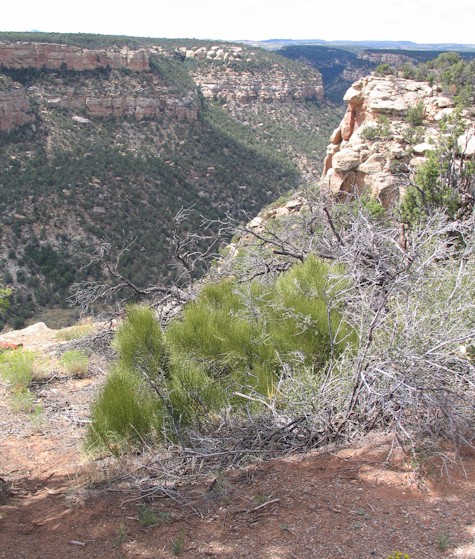
GENERAL
INFORMATION FOR BIOLOGY 3190
ECONOMIC
BOTANY LABORATORY
Fall 2009

Purpose and content of
course:
This course is designed to review principles of economic botany at an
introductory level. The labs include field trips to local areas of botanical
interest and laboratory exercises about plant structure and chemical analysis of
economically important plants. Students will also obtain some practical
experience with botanically-related tasks such as beer, wine and soap making.
The course is intended for biology and environmental science majors, and
requires Biology 3390 as a pre-requisite or co-requisite.
Text: Simpson, B.B. and M.C. Ogorzaly. 2001. Economic Botany: Plants in
Our World. McGraw-Hill, Inc. 3rd ed.,
Laboratory Handouts (supplied by instructors).
Students are required to have an unlined,
bound laboratory notebook (e.g., Roaring
Spring Composition book available in UCA bookstore).
Instructor:
John S. Choinski, Jr.
Office hours:
900-1100a M, F; 130-330p T, TH
Phone:
501-450-5918
E-mail:
johnc@uca.edu
Class meetings:
1100a-150p F
in LSC027
Grading: There
will be semi-weekly quizzes given during the course each worth 10 points.
Students are also expected to keep a comprehensive lab book (details to be
described in class). The final grade will be computed based upon the percentage
of the possible points achieved ~50% quizzes/~50% notebook.
Assignment of withdrawal
(W) grades:
For those students who are eligible for a 'WP' or "WF' grade, you will not
be assigned a 'WP' grade unless you are passing at the time you officially drop
the course. Note: It is UCA policy that an instructor may assign at any time a 'WF'
grade to a student whom consistently misses class (refer to UCA Undergraduate
Bulletin for details).
Makeup exams:
NO MAKEUP QUIZZES WILL BE GIVEN. IF YOU MISS A QUIZ FOR ANY REASON, THAT WILL
COUNT AS A ZERO GRADE. The result of two or more missed quizzes may be a 'WF'
grade.
Attendance:
Laboratory attendance will be carefully monitored. Two missed labs will result
in a ‘WF’ grade being assigned.
Academic Integrity &
Conduct:
Students are expected to uphold the highest standards of academic integrity.
Incidences of academic dishonesty such as cheating on exams/quizzes or
plagiarism on web materials will be dealt with severely. Students found in
violation will be dismissed from the class with a WF and action taken in
accordance with the UCA Student Handbook. Students are expected to show respect
for the instructor and their fellow students while in class and (other than
asking relevant questions) refrain from talking or disrupting the class. Should
you be asked to leave the class for any conduct violation, you will be dropped
with a WF grade.
Disclaimer:
Every attempt will be made to keep within the schedules set by this syllabus.
The instructor will endeavor to inform the class of these changes as soon as
possible.
Disability:
Any student with a documented disability (e.g., physical, learning,
psychiatric, vision, hearing, etc.) who needs to arrange reasonable
accommodations must contact the instructor and Disability Services (Bernard 205;
450-3135) at the beginning of the semester.
Advice: The major source of difficulty for many students is that they postpone studying until the very last minute and avoid seeking help from the professor in those areas that they do not understand. This strategy almost always leads to disappointment and the possible retaking of the class at a later date. REMEMBER: KEEP UP WITH THE MATERIAL. READ AND STUDY EVERY WEEK, NOT JUST THE FEW DAYS BEFORE AN EXAM.
Tentative
Laboratory Schedule
|
Date |
Topic |
|
August 21 |
No
Lab |
|
August 28 |
Introduction to plant architecture: stems, roots and leaves |
|
September 4 |
Introduction to plant architecture: cells and tissues |
|
September 11 |
Introduction to plant architecture: flowers, fruits and seeds |
|
September 18 |
Vegetative propagation |
|
September 25 |
Major Foods –
Chemical testing of nutrients |
|
October 2 |
Non-alcoholic
beverages: Extraction of caffeine from various plants |
|
October 9 |
Visit to LR brewery |
|
October 16 |
No
lab (winter break) |
|
October 23 |
Identification,
collection of medicinal plants
(Dr Quave) |
|
October 30 |
Antimicrobial activity
in plant secondary compounds: Field trip to LR (Dr.
Quave) |
|
November 6 |
Field trip to
International Paper, Morrilton |
|
November 13 |
Alcoholic fermentation
(beer, wine, mead) (Dr. Waggoner) |
|
November 20 |
Soap-making |
|
November 27 |
No
lab (Thanksgiving) |
|
December 4 |
No
lab (Study Day) |